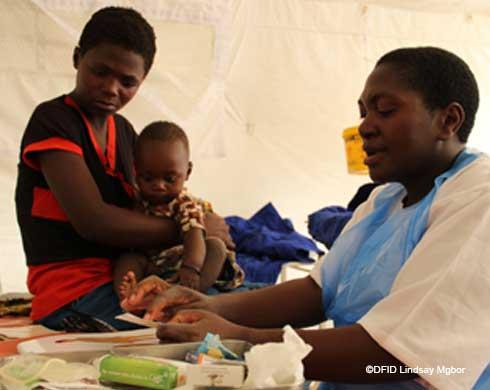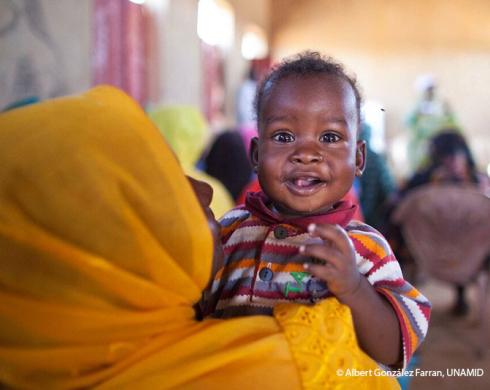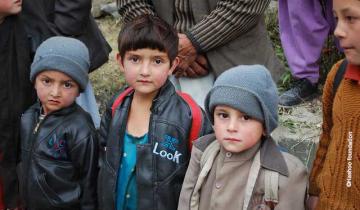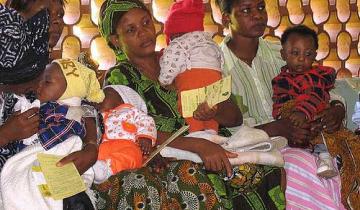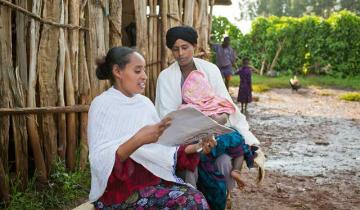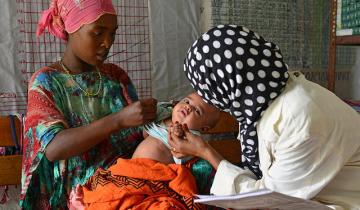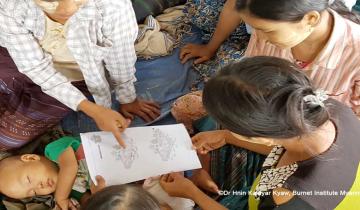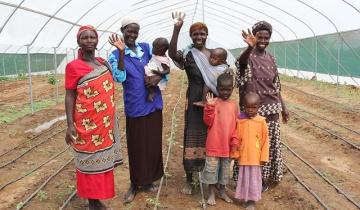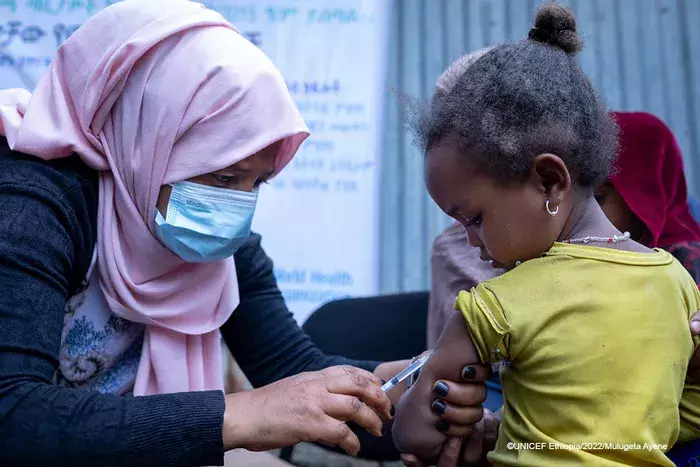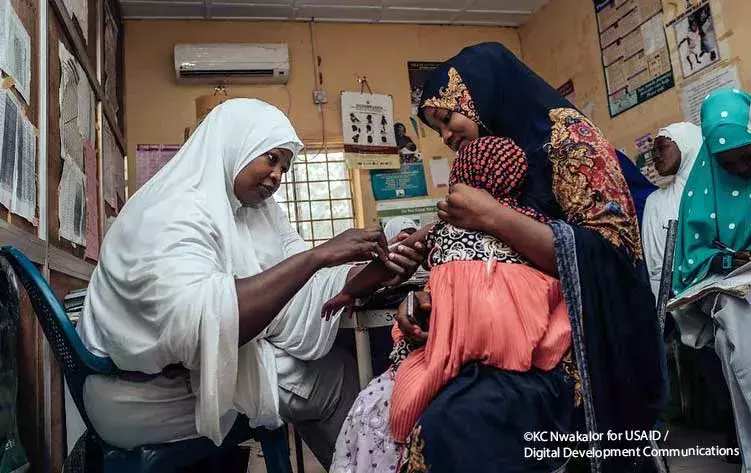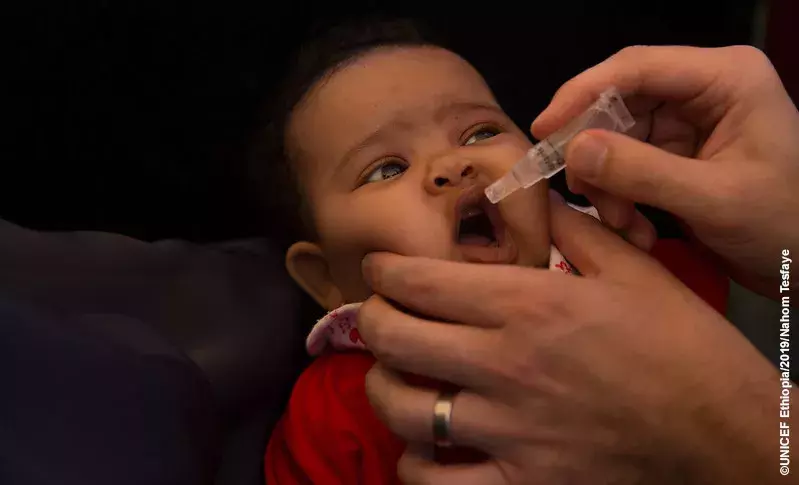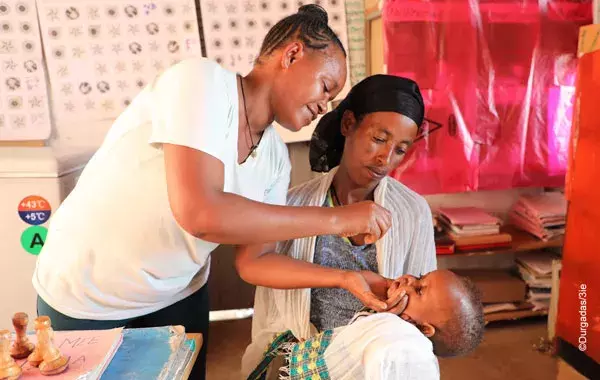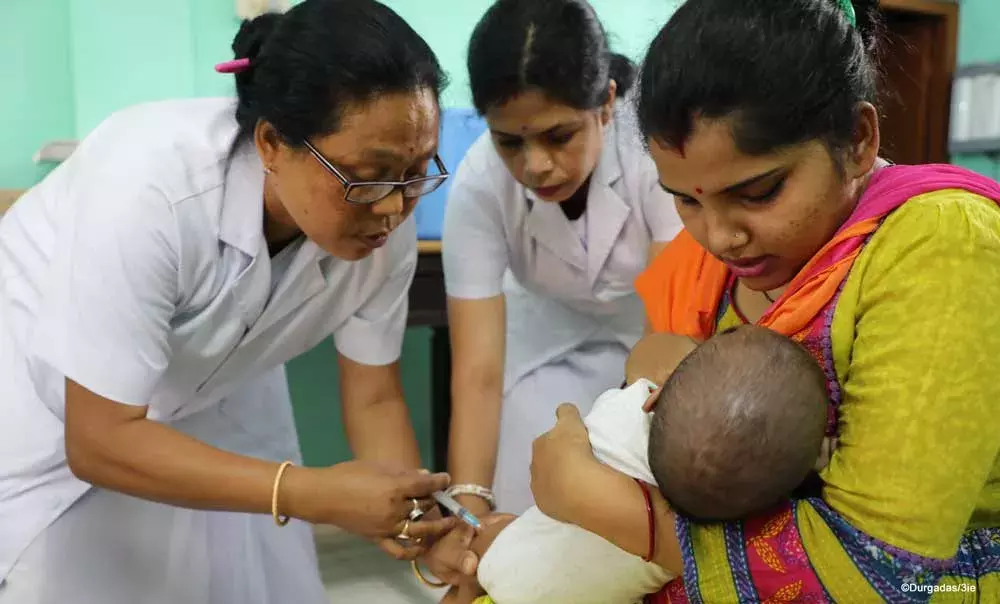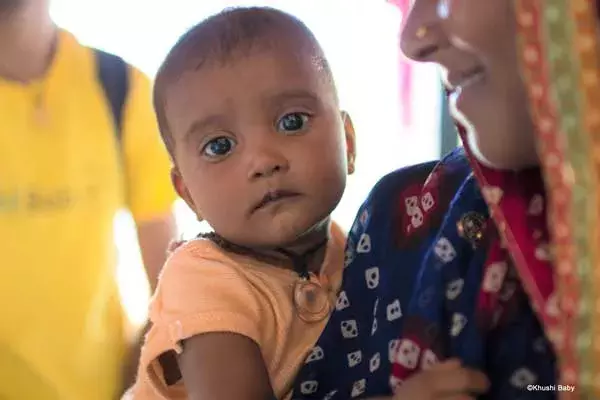Immunization
Vaccines prevent millions of child deaths each year. Over the past few years, however, global immunization coverage has stagnated and even slipped, particularly in low- and middle-income countries (L&MICs). This was even before the COVID-19 pandemic increased the number of unvaccinated children by 6 million between 2019 and 2021. In 2021, the World Health Organization estimated that 25 million children under age one had not received all their vaccinations. Our work in immunization seeks to generate evidence around strategies to improve routine child immunization and reduce vaccine hesitancy and zero-dose children in L&MICs.

Innovations in increasing immunization evidence program
A 3ie scoping study indicated the potential of innovative community-based approaches to overcome the barriers to immunization coverage in low- and middle-income countries. It also highlighted a clear lack of evidence on the effectiveness of these approaches. Launched in 2015, 3ie’s immunization evidence program is a USD 7.4 million initiative that supported seven impact evaluations and six formative evaluations of innovative interventions and community engagement approaches to improve immunization outcomes in countries with low or stagnating immunization rates.
The formative evaluations test the appropriateness, feasibility and acceptability of the interventions, whilst the impact evaluations assess the effectiveness and scalability of innovative interventions. We have also synthesized findings from the formative evaluations, completed an evidence gap map (EGM) and produced a systematic review (SR) on this topic.
Read the Formative evaluations synthesis report on PLoS One
Explore the EGM
Read the EGM report on BMJ Open
Read the SR protocol
Read the SR on BMJ Open
As part of the program, we recently completed a Review of Reviews that synthesizes the best available evidence on effective interventions for improving routine child immunization outcomes. Using the Review of Reviews, we are now developing implementation friendly descriptions of interventions.
Read a presentation on the Review of Reviews here.
Drivers of routine vaccination uptake
3ie is carrying out a mixed-methods synthesis to understand the factors affecting uptake of routine childhood vaccination in select WHO and Gavi-priority countries such as India, Nigeria, and Uganda. The synthesis team is using the WHO Behavioral and Social Determinants (BeSD) framework to identify and classify the drivers of vaccination uptake. This project is supported by the Bill & Melinda Gates Foundation India.
Key activities and workshops
12 January 2023 | Effective interventions to increase routine childhood immunization in L&MICs
In this webinar, 3ie's Monica Jain presented findings from the Review of Reviews that synthesizes the best available evidence on effective interventions for improving routine child immunization outcomes in L&MICs. The review, the largest of its kind, assesses the existing evidence on the interventions that are claimed to be effective in addressing the barriers related to access, delivery or demand. Click here to view the event.
27 February 2020 | Learning from innovations in increasing immunization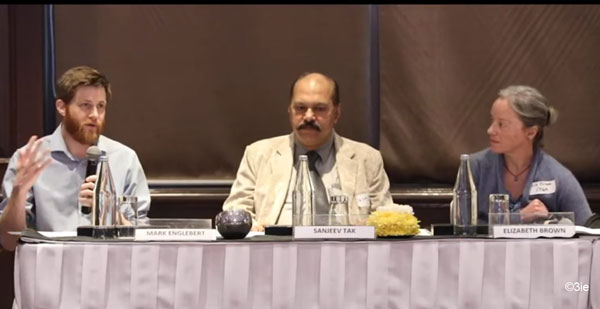
Participants discussed findings and insights from the program as well as preliminary findings from a formative evaluation synthesis and a forthcoming evidence gap map of effectiveness studies in immunization. The discussions unpacked the term ‘community engagement’ and the challenges and lessons in designing, implementing and learning from the evaluations of community engagement-based interventions to improve immunization. The conference brought researchers and policymakers together to discuss how to conduct and use costing analyses. To read more, click here.
11-12 July, 2017 | Mid-term learning workshop
Participants discussed the challenges associated with implementing technology-enabled interventions in real-world contexts; training frontline health workers with high workloads but limited literacy, skills and exposure to innovations; and experiences with integrating interventions into existing healthcare systems at the institutional and financial levels. To read the workshop report, click here.
News and features
- In this article, Monica Jain and Avantika Bagai discuss the innovative approaches of engaging communities for improving immunization coverage in India and how 3ie’s studies will inform us which community engagement interventions work, where, how and at what costs | The Asian Age, May 2018
- 3ie organized an Evidence Dialogues webinar on 30 June 2022 focused on what we know about increasing routine immunization of children in low- and middle-income countries through community engagement. The session included a brief presentation highlighting the evidence from our systematic review, including its key qualitative and cost-effectiveness findings. The panel discussion highlighted how policymakers and health sector specialists can translate these approaches into practice as they catalyze action to ensure all children get all the shots they need. View webinar
